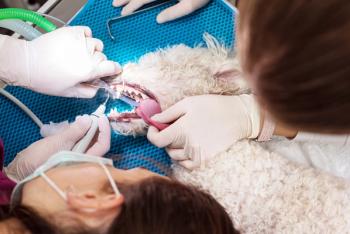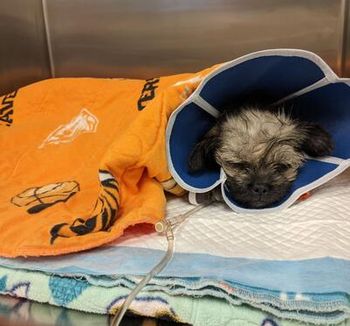
A formula for self-care, for veterinary patients' sake ...
When you work in emergency and critical care, youve gotta mix in some self-care to be ready to care of your veterinary patients.
Ahhhh ... a moment for yourself. (Shutterstock.com)
A quick tip for those struggling to sleep
Nurses who work swing or graveyard shifts can have problems with exhaustion and getting adequate rest. Black-out curtains are a wonderful tool.
Your own self-care is a critical component of your patients' well-being. Why? Without self-care you're at an increased risk of career burnout or compassion fatigue.
Burnout = stress that arises from daily stressors.
Compassion fatigue = stress that comes from the type of work we do.
Anybody who is a caregiver or first responder is at risk for both burn out and compassion fatigue.
A short list of self-care tips
Vacation, recreation time, self-care, outdoor time, exercise, yoga, meditation, relaxing activities and rest are a sampling of activities designed to recharge you. Use them to help yourself thrive.
Hear more straight from Plummer in this audio clip from her session.
Here's a rundown of how Plummer recommends staving off compassion fatigue:
> Start the day with a relaxing ritual.
> Do something every day that you love.
> Adopt healthy eating, exercise and sleeping habits.
> Set boundaries.
> Take a break from technology.
> Nurse your creative side.
> Learn how to manage stress.
> Think about the "why" that made you want to be a veterinary technician.
Need some help getting started? Learn how to practice self-care for better health and a better life at
You. Can. Do. This!
At Fetch dvm360 conference, we're the support system you need. With every conference this year, we intend to nurture your mind (meaning quality CE for days) while also encouraging you to take stock of your physical and emotional health.
Newsletter
From exam room tips to practice management insights, get trusted veterinary news delivered straight to your inbox—subscribe to dvm360.





